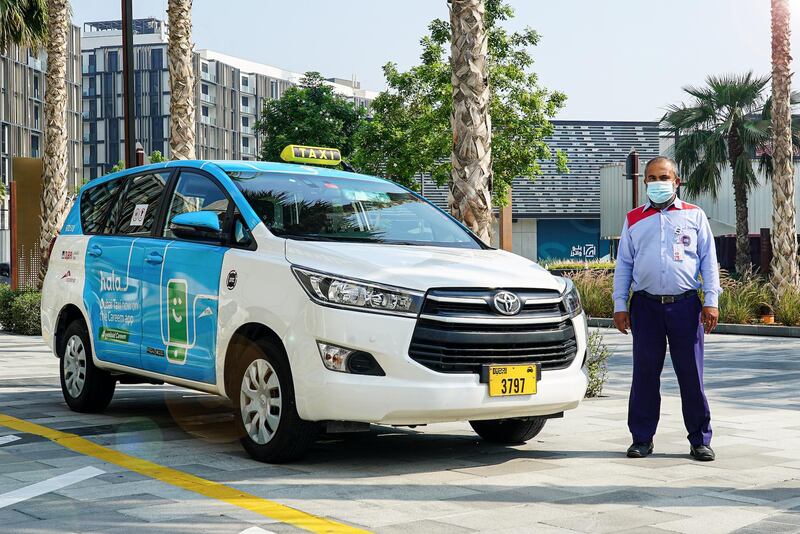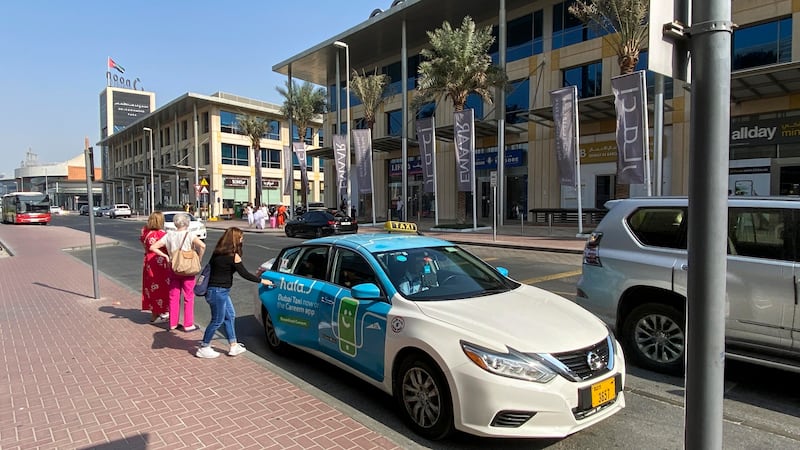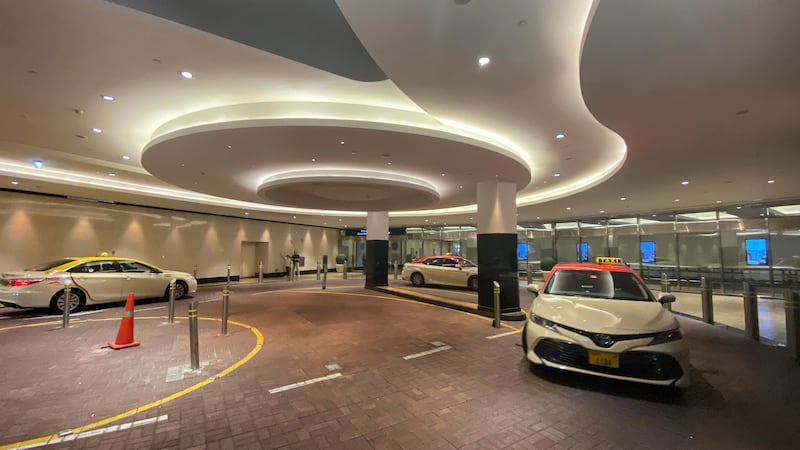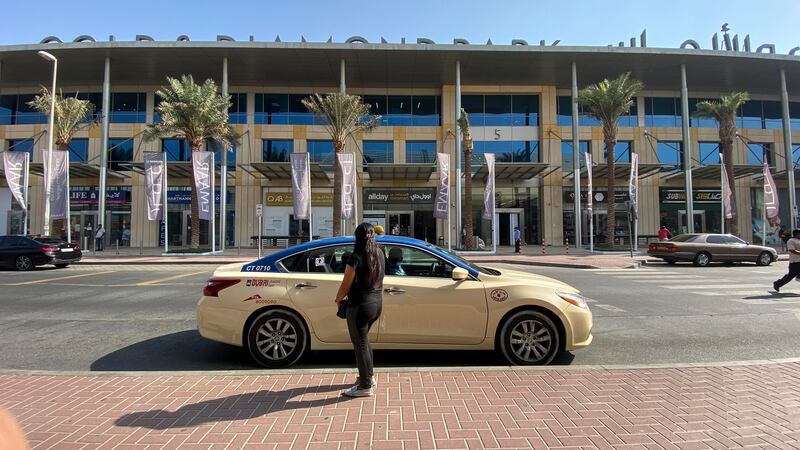The days of flagging a taxi on the street could be coming to an end in Dubai as transport authorities look to switch to online booking.
Dubai's Roads and Transport Authority’s Hala e-hailing service accounted for almost a third of all taxi trips in the emirate in 2022.
An expanded Hala service accessed using the Careem mobile app could switch 80 per cent of all rides to online hailing in the years ahead as the most efficient way to provide taxi services on the roads.
A transition towards an online booking taxi service should cut waiting times to less than three and a half minutes, and reduce wasted mileage, while cutting fuel consumption and carbon emissions, the RTA said in a press release.
“The expansion of taxi e-hail services, as opposed to street hailing, reinforces the government’s goal of transforming Dubai into the world's smartest city,” said Mattar Al Tayer, the RTA’s Director-General.
“E-hailing has emerged as the most efficient means of matching taxi supply with demand and providing customers with hassle-free, efficient taxi services.
“The service boosts the efficiency of taxi operations in Dubai by streamlining the process of locating and booking rides electronically.”
Launched in 2019, Hala provided 11 per cent of total taxi trips in 2020.
A year later and that number increased to 18 per cent and then to 30 per cent in 2022.
Of the 11,662 taxis operating in Dubai in 2022, 105 million trips were completed in total.
Under the expansion, designated zones reserved for e-hail services will be created alongside extra parking spaces for both street-hail taxis and e-hail vehicles, as well as more parking for taxis in high-demand areas.
In Singapore, 80 per cent of taxi services operate through e-hailing.
Customers there said it had become increasingly difficult to flag down a cab on the street, although that was also due to a shortage of drivers, as well as a migration to online bookings.
In Dubai, as the RTA allocates a dedicated fleet to e-hail services, Hala will be responsible for promoting the service, building a customer base and implementing driver incentives.
“This step aligns with the worldwide shift in urban transportation planning,” said Mr Al Tayer.
“By focusing on improving individual mobility, we can decrease dependence on private cars, foster happiness among residents, deliver outstanding services to visitors and boost customer satisfaction.”












